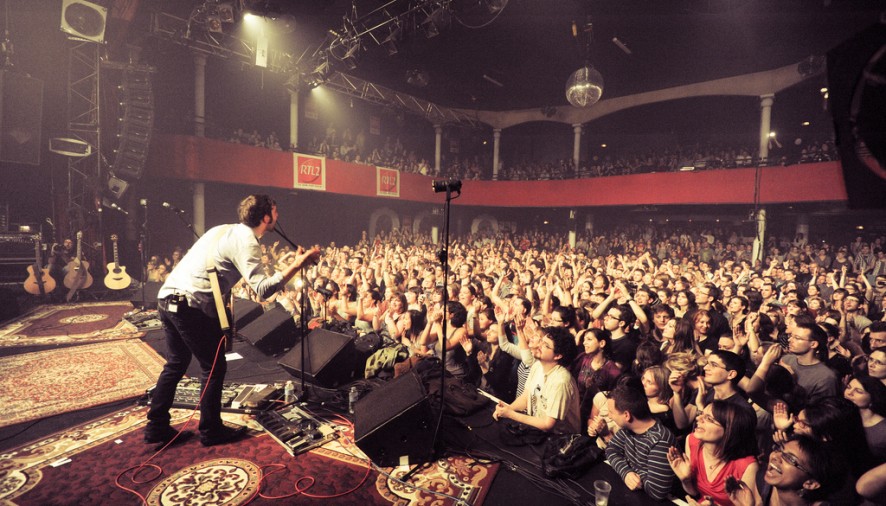After the recent Paris attacks, gig security is set to be on the increase. How much will this affect our experience of going to gigs?
What happened in Paris was a tragedy, we can all agree. Some have been calling the terror attacks a direct assault on culture, and it’s hard to see it any other way when the majority of those who lost their life were innocent gig goers, out to have a good time at a rock concert. Mostly young, probably liberal, it was their sense of fun and freedom that was attacked and that most threatened ISIS.
Just how the gunmen got inside the music venue is still unclear. In the wake of the attacks high profile bands like Foo Fighters and U2 cancelled their upcoming shows, partly out of respect, but partly over worry for the safety of their own fans. Suddenly, all eyes have turned to gig security, and just how this could have been allowed to happen in the first place.
On Saturday evening, musicians all over the world were continuing to perform their shows, dedicating a song to the victims of Paris, and alluding to the liberty to be found in music – Brandon Flowers simply projected the French flag as a backdrop at his concert. But whilst music fans and musicians were standing up defiantly and resolutely enjoying live music, concert venue companies were already thinking about plans to tighten security.
Live Nation, the company that controls eleven O2 venues across the UK as well as London’s Shepherd’s Bush and Cardiff’s Motorpoint Arena, has put out a statement that it is acting with ‘an abundance of caution’ in light of the Paris attacks: ‘The safety and security of our shows, fans and venues continues to be our highest priority,’ they announced. ‘We have implemented heightened security procedures globally.’ They then go on to say they can’t reveal exactly what this heightened security consists of. Meanwhile, a huge name in live music over in America, AEG Live, has also reportedly heightened security measures, and those who attended funk band Lettuce’s shows in New York the weekend of the attacks commented on the especially thorough security searches they had to go through to get inside the venue.
The promised changes in ‘heightened security’ are still somewhat vague, but what’s more important is how this will affect the gig experience. Going to see one of your favourite bands or checking out some new talent is supposed to be a time you can kick back and just focus on the music. Even if you’re throwing serious shapes in the mosh pit, it’s supposed to be relaxing, a time to switch off and escape. Stricter bag checks, perhaps earlier doors and more security guards will all significantly change the atmosphere of a gig. If you’re forced to turn up early for exhaustive security checks, especially likely at high profile concerts and arena tours, the whole feel of the evening is going to change. Immediately, you’re put on edge – a gig may no longer feel like a casual affair.
Already there is a strange atmosphere following the events at Paris. Suddenly, people gathering to hear live music feels something like a political statement; something like a risk. If you’re constantly looking for the nearest emergency exit, you’re not going to be enjoying the band on stage. Bob Dylan recently requested twelve armed security guards stationed in and around his audience for his show in Italy. As one of the most high profile names in music his keen focus on security is understandable, but armed guards at a gig would have been a severe dampener on the mood of evening, and potentially enough to induce panic on their own. It’s not something you’d like to see rolled out to other top artist’s live shows.
And what about the bands themselves? Eagles Of Death Metal, who were playing Le Bataclan at the time, are obviously severely shaken by what happened. Do they feel responsible for what happened, however misplaced that sense of responsibility might be? Similar attacks have suddenly become every artist’s worst nightmare. Though heightened security has been promised by the big companies, what about small independent venues, often the heart of a city’s music scene? Will they suffer for maybe not having the manpower for watertight security? It would be an utter shame for people to miss gigs out of fear, and a greater shame still for bands to start avoiding certain venues or cities out of their own anxiety for security. We can’t let cultural black spots form on Europe’s map because of what happened. It was culture ISIS was attacking, and it’s culture – live music in particular – we now must protect and promote, increased security or otherwise. There has always been a sense of camaraderie in live music and we need it now more than ever.
Heather Nash

